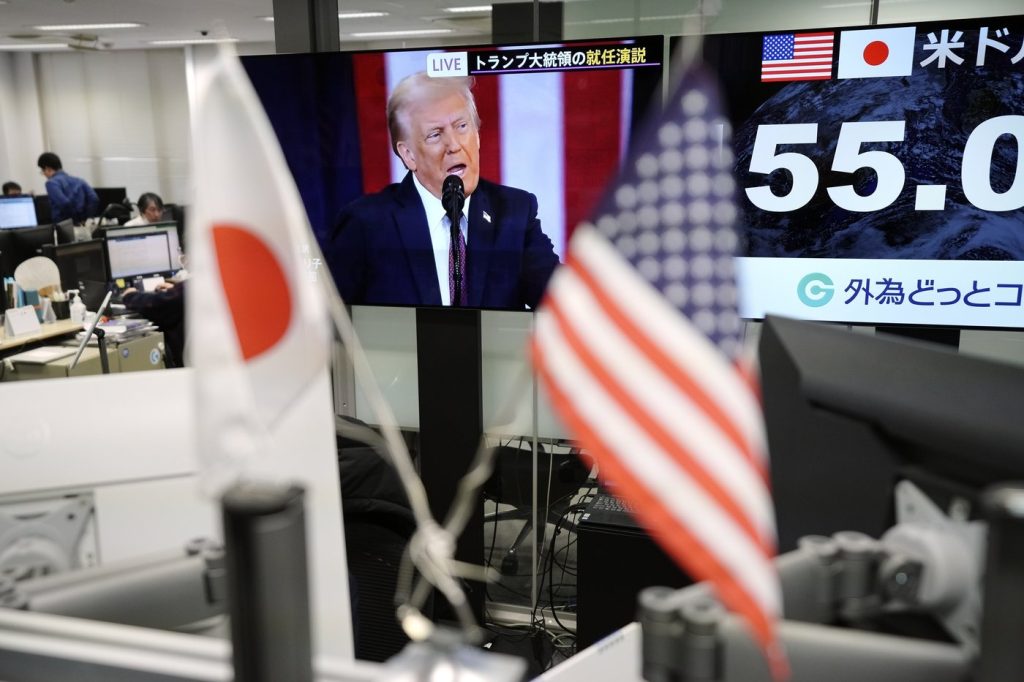TOKYO (AP) – On Tuesday, Asian shares exhibited a mixed performance during a relatively quiet trading session, with many market participants awaiting a reaction to the inauguration of U.S. President Donald Trump. Analysts expressed varying opinions on the potential implications of the inauguration, with some optimistic about the boost it might provide to global markets, while others highlighted concerns over possible tariffs that could negatively impact Asian economies. Notably, the U.S. markets were closed the previous day in observance of Martin Luther King Jr. Day.
Japan's benchmark Nikkei 225 experienced a slight decline of 0.1%, settling at 38,951.77 during morning trading. In contrast, Australia’s S&P/ASX 200 index rose by 0.5% to reach 8,392.80, while South Korea's Kospi saw a modest decrease of 0.2%, landing at 2,514.06. Uncertainties surrounding the effects of Trump’s policies on China had eased somewhat, especially after both nations expressed a commitment to improving bilateral relations. Moreover, President Trump refrained from announcing any immediate drastic measures regarding potential tariffs on Chinese exports to the United States, which has contributed to a calmer market sentiment.
The Hang Seng index in Hong Kong saw an uptick of 0.4%, reaching 20,012.25, whereas the Shanghai Composite index edged down by 0.3% to 3,233.85. Stephen Innes, managing partner at SPI Asset Management, noted that President Trump's decision not to implement new tariffs immediately was a notable development that calmed nerves across global markets. This sentiment was further echoed in U.S. stock market futures, which indicated optimism about upcoming executive actions potentially aimed at stimulating the U.S. economy.
In corporate news, shares of Fuji Media Holdings, which includes the prominent Japanese broadcaster Fuji TV, faced a decline amidst a scandal reported by the weekly magazine Shukan Bunshun. Consequently, several major companies, including Toyota Motor Corp., opted to suspend their television commercials on Fuji TV programs. The stock has displayed considerable volatility as the scandal unfolded.
In the energy markets, benchmark U.S. crude oil prices fell by $1.14 to settle at $76.74 a barrel, while Brent crude, the international benchmark, increased slightly by 13 cents, reaching $80.28 a barrel. Shifts in currency trading indicated a weaker U.S. dollar as a response to the uncertain trajectory of Trump's tariff policies, although these currency movements remained relatively moderated. The dollar dipped to 155.14 Japanese yen, decreasing from a prior value of 155.61 yen. Meanwhile, the euro traded at $1.0389, down from $1.0419.
In summary, the trading environment in Asia reflected a complex interplay of optimism and caution influenced by the U.S. political landscape and its potential economic ramifications on the region. The mixed results across various stock indices, combined with movements in energy and currency markets, illustrate the delicate balance of investor sentiment as they navigate these unfolding events.










